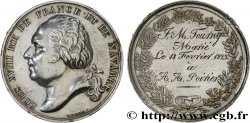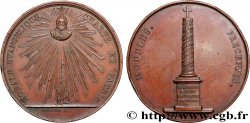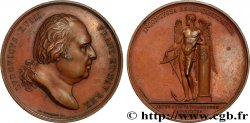fme_369743 - LOUIS XVIII Médaille de baptême du Duc de Bordeaux
Not available.
Item sold on our e-shop (2019)
Price : 100.00 €
Item sold on our e-shop (2019)
Price : 100.00 €
Type : Médaille de baptême du Duc de Bordeaux
Date: 1821
Mint name / Town : 75 - Paris
Metal : bronze
Diameter : 50 mm
Orientation dies : 12 h.
Engraver DESBOEUFS Antoine (1793-1862)
Edge : lisse
Coments on the condition:
Agréable médaille avec une patine brune, un peu sombre avec pas mal de traces de manipulation
Obverse
Obverse legend : HENRI IV - LOUIS XVIII.
Obverse description : Bustes accolés de Louis XVIII au premier plan et de Henri IV au second.
Reverse
Reverse legend : AD. SACROS. BAPTISMI. FONTES. // DUX. BURDIGALENSIS / AN. MDCCCXXI. DIE. MAII I. .
Reverse description : Baptême du duc de Bordeaux : la France, personnifiée par une femme casquée, tenant dans ses bras le duc de Bordeaux ; à gauche, la Religion voilée s'appuyant sur une croix et versant l'eau sainte sur la tête de l'enfant.
Commentary
Médaille signée DESBOEUFS au droit et au revers. Antoine Desboeufs, né à Paris le 13 octobre 1793 et mort à Passy le 12 juillet 1862, est un graveur, médailleur et sculpteur français. Fut avant tout un graveur et médailleur, il ne s'intéressa à la sculpture qu'à partir de 1830. Il eut pour élève Louis-Eugène Bion (1807 - 1860), Pierre-Charles Simart (1806 - 1857).
Cette représentation des deux souverains n’est pas sans rappeler les médailles pour la statue équestre d’Henri IV
Né en 1820, après la mort de son père le duc de Berry, le duc de Bordeaux était considéré comme l’enfant du miracle et fut baptisé le 1er mai 1821 à Notre-Dame de Paris.
.
Cette représentation des deux souverains n’est pas sans rappeler les médailles pour la statue équestre d’Henri IV
Né en 1820, après la mort de son père le duc de Berry, le duc de Bordeaux était considéré comme l’enfant du miracle et fut baptisé le 1er mai 1821 à Notre-Dame de Paris.
.







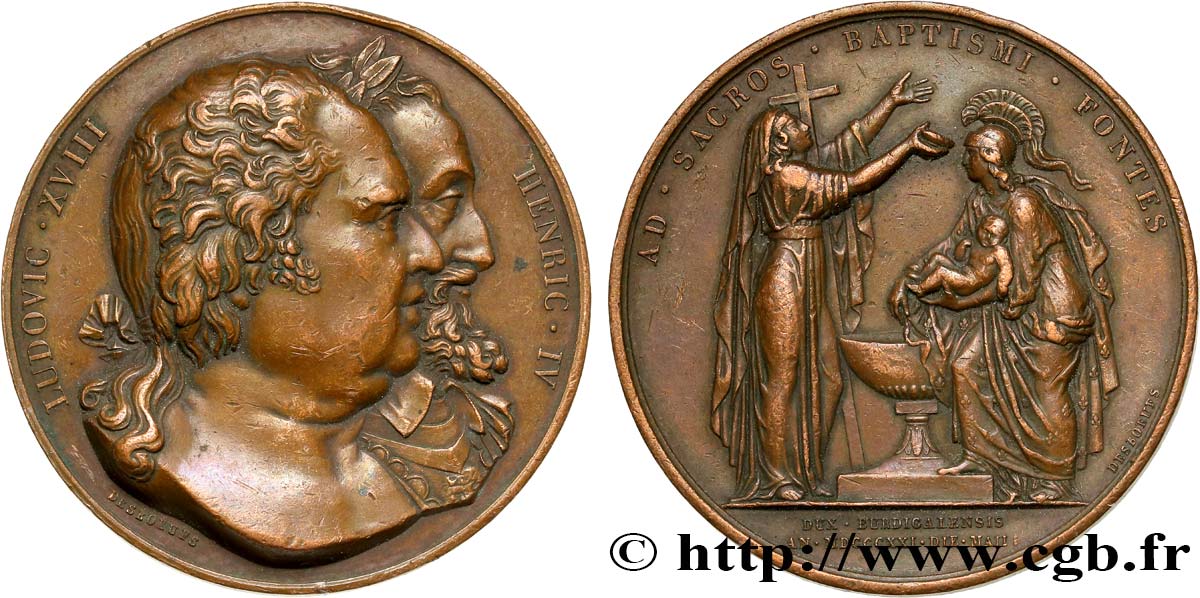
 Report a mistake
Report a mistake Print the page
Print the page Share my selection
Share my selection Ask a question
Ask a question Consign / sell
Consign / sell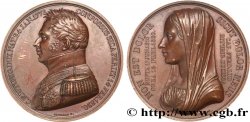
 Full data
Full data
